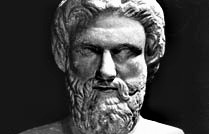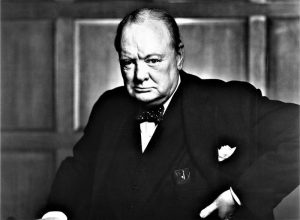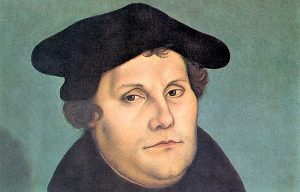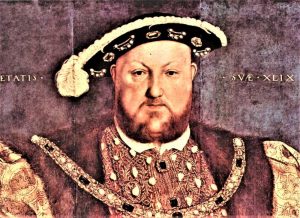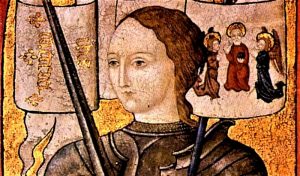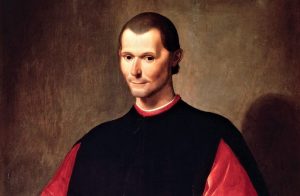Christopher Columbus
Christopher Columbus was an Italian explorer and navigator who, in 1492, sailed across the Atlantic from Spain with the ships La Pinta and La Niña hoping to find a new route to India. He made a total of four voyages to the Caribbean and South America and is credited with opening the Americas to European colonization.
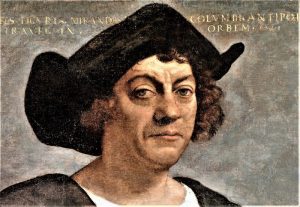
Personal information
- Birth date: 1451
- Birthplace: Genoa, Italy
- When did he die: 20/05/1506
- Where did he die: Valladolid, Castile
Who was Christopher Columbus?
He was a man full of polemics and mysteries, navigator and discoverer, self-taught and an observer who came to discover what we know today as the New World, being the first admiral, viceroy and governor of the Indies.
Characteristics
Some characteristics of Christopher Columbus were the following:
- He was an artisan and merchant.
- He worked in coastal navigation for mercantile
- He dedicated part of his life to making maps.
- He thought the earth was round and not flat.
Biography of Christopher Columbus
Christopher Columbus was born in 1451 in the Republic of Genoa, or what is now Italy. When he was 20, he moved to Lisbon, Portugal, and later relocated to Spain, which was his base of operations throughout his life.
Columbus went to sea as a teenager, participating in several commercial trips in the Mediterranean and Aegean seas. One of those trips, to the island of Khios, in modern Greece, brought him as close as he could get to Asia.
His first voyage to the Atlantic Ocean in 1476 almost cost him his life because the commercial fleet with which he sailed was attacked by French corsairs off the coast of Portugal. His ship was burned and Columbus had to swim towards the Portuguese coast. He went to Lisbon, Portugal, where he finally settled and married with Felipa Perestrelo. They had a son, Diego and his wife died shortly after, and Columbus moved to Spain. He had a second son, Fernando, who was born out of wedlock in 1488 with Beatriz Enríquez de Arana.
Trips of Christopher Columbus
First trip
On August 3, 1492, he left Puerto de Palos with two caravels, La Niña and La Pinta and La Santa María. Seeing time go by without touching land, the crew were desperate, provoking a mutiny that Columbus calmed, assuring that if in three days they did not see land, they would return to Spain.
On October 12, 1492, sailor Rodrigo de Triana spotted land. Christopher Columbus and his expedition reached the island that the natives called Guanahani, which Columbus named San Salvador, located in the Bahamas. He immediately explored and arrived in what is now Cuba, which he called Juana.
Columbus believed he had arrived in the East Indies and so he called his inhabitants “Indians“. Then he came to the island that today is from Haiti and the Dominican Republic and called it Hispaniola. On January 4, 1493, Christopher Columbus returned to Spain with the two caravels he had left, leaving 40 men at the Navidad Fort.
Second trip
Supported by the kings, he begins his second journey to discover oriental treasures. He left Cadiz on September 25, 1493 and discovered the Antilles, Cuba and Puerto Rico. He managed to reach Hispaniola, where he found the Navidad Fort destroyed and the men murdered. Columbus founded in that place the Isabela in honor of the Queen of Spain. After traveling and discovering Jamaica he returned to Isabela where he found chaos as the Spaniards forced the Indians to hand over the gold and killed each other.
Third trip
Several conditions and requirements were imposed on him so that, he could make the trip, and it took him longer to find people who would like to go with him. He left Cadiz on May 30th, 1498, with 6 ships. They arrived at the Canary Islands where 3 caravels left for the island of Hispaniola and another 3, where Columbus was travelling to Cape Green. On July 31 they discovered the Orinoco River and arrived in Venezuela. In this trip the rebellion of Francisco Roldán, who was the mayor of Hispaniola, took place.
Fourth trip
He left Cadiz on May 9, 1502 for the Canary Islands, then for the Lesser Antilles and from there, they went to Santo Domingo, where the governor Frey Nicolás de Obando, by order of the Catholic Monarchs, prohibited him from disembarking, so he had to continue towards Jamaica and Cuba, then descending towards Honduras, where on August 1 a contact between Europeans and Mayans was made.
They traveled the Caribbean coast of Honduras, Nicaragua, Costa Rica and Panama arriving at Belén River, where they founded the first Spanish city: Santa María de Belén. There, they lost one of the caravels, destroyed by the storms. Then they arrived in Veragua where they lost another caravel. They only had two caravels left. They arrived in Jamaica on June 25, 1503 where they parked their two remaining caravels so as not to lose them in the sea.
Death
Christopher Columbus died in Valladolid on May 20th, 1506, at the age of 55, as a result of a heart attack. According to a study, published by Antonio Rodríguez Cuartero, of the Department of Internal Medicine at the University of Granada, Columbus died of a heart attack caused by Reiter’s syndrome or reactive arthritis. According to his personal diaries and his friends’ references, the symptoms of this disease were very visible in his last three years.
His remains were buried in Valladolid and then in the monastery of La Cartuja in Seville.
Origin of Christopher Columbus
The exact origin of Christopher Columbus has not yet been defined. His origin has been attributed to Italian nationality, specifically Genoa, however, it is said that he did not speak Italian. Many countries claim their nationality, Genoese, Corsican French, Portuguese, Spanish, Galician, Andalusian, Catalan, Majorcan, etc..
There is also a theory that Columbus was hiding that he was Jewish, since at that time, Jews were about to be expelled from Spain. The letters he sent to Italy were in Spanish and were addressed to Italian people who did not speak the language. On the other hand, studies show that he wrote with Catalan characters and his maps have the Catalan style. Finally, in his will, he says that he was of Genovese origin.
Contributions
Among the main contributions of Christopher Columbus we can mention the following:
- The expansion of the European continent was achieved.
- The communication between the old and the new world was opened.
- A great variety of new species were discovered.
- With his travels, he was able to demonstrate that it was possible to sail towards the west of the European continent.
- He discovered the magnetic declination of the earth.
- He verified and demonstrated that the Earth was not flat.
Importance
The greatest importance given to Christopher Columbus was that thanks to his travels, he managed to know different and new routes for trade and how to get to Asia by west, in addition to the great wealth that were obtained by Europeans.
The importance of Columbus’ voyages was also the official conquest of the Americas, taking into consideration that these lands had already been discovered by Vikings and others.
Parents
His father’s name was Domenico Colombo and he was born in the Republic of Genoa, and his mother’s name was Sunsanna Fontanarrossa who was a young woman who was born in the district of Val Bisagno in Genoa and whose father was a master weaver and also a merchant.
Descendants
- Fernando Colón: born August 15, 1488 in Seville. He was the son of Christopher Columbus and Beatriz Enríquez de Arana. He was his second son and was born five years before his father discovered America.
- Diego Colón: son and successor of Christopher Columbus in the viceroyalty and government of the Indies. He was the first-born son of Columbus and Felipa Moniz Perestrelo.
Phrases
Some of his most important phrases are:
- The sea will give each man a new hope, as sleep gives him dreams.
- Find happiness in your work or you’ll never be happy.
- They love their neighbors as themselves, and have the sweetest speech in the world, and gentle and always with laughter.
- Very well done, very beautiful bodies and very good faces.
- I want to go to the Indies by the west. The Earth is round.
Books and films about Christopher Columbus
Some famous books that tell the story of Christopher Columbus are:
- Diary On board of Christopher Columbus: tells us how he is surrounded by controversy and mystery.
- The Four Journeys and the Testament: narrates the first expeditions to the New World.
- On board diary: stories of Christopher Columbus and his enigmas and secrets.
- The great adventure of Christopher Columbus: the life of Columbus narrated by Manuel Fernández Álvarez.
Several films have also been created where the story is reflected, among them we can mention:
- Also the rain: starring Gabriel Bernal and Luis Tosar shows us the two faces that Christopher Columbus had, one ambitious and the other as an intrepid navigator.
- Alba de América: This is one of the most controversial in the history of Columbus’ arrival in America.
- The Other Conquest: narrates the resistance that Emperor Moctezuma put up against the Spanish invasion.
- The Golden One: a film shot in Costa Rica that narrates the role of Spain during the conquest.
- The Conquest of Paradise: narrates the discovery of America and the experiences of Christopher Columbus, and how the lives of the Indians changed with the discovery.
How to cite this article?
Briceño V., Gabriela. (2019). Christopher Columbus. Recovered on 23 February, 2024, de Euston96: https://www.euston96.com/en/christopher-columbus/



